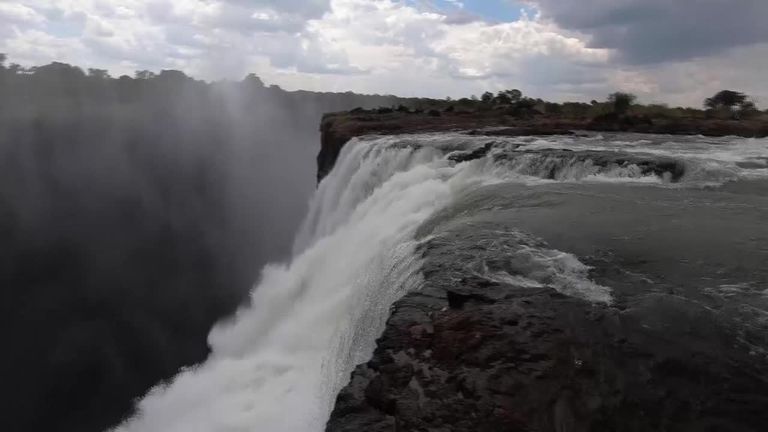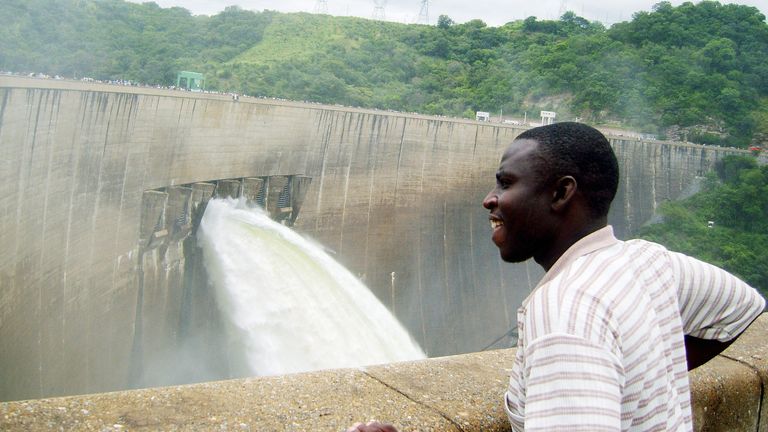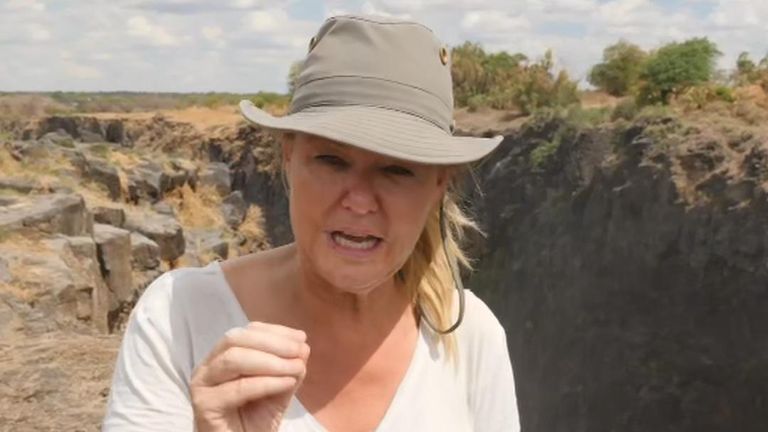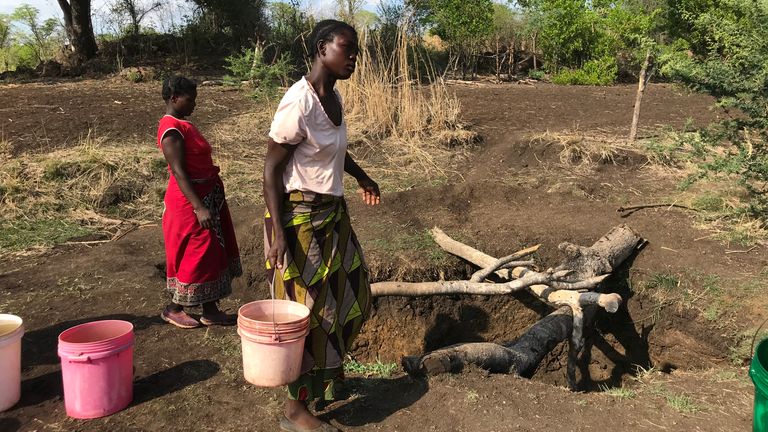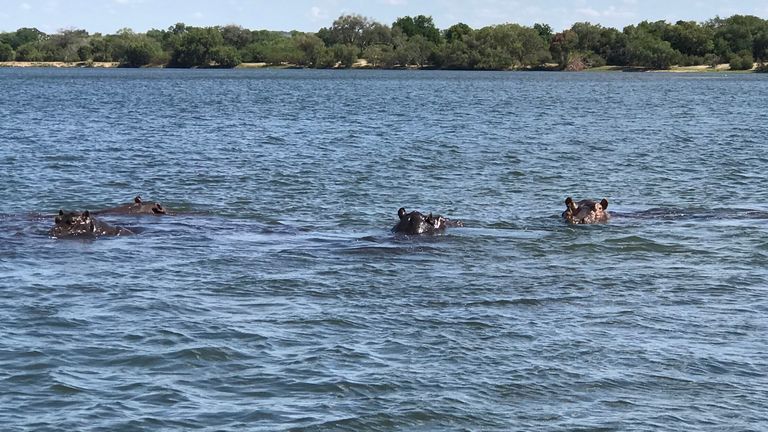Climate change: Drought cuts Victoria Falls to lowest level in 25 years
Zambian president Edgar Lungu accuses climate change doubters, including Donald Trump, of playing politics with a serious problem.
Thursday 5 December 2019 11:33, UK
The president of Zambia has warned of the risk of losing natural wonders like the Victoria Falls if action isn't taken soon on climate change.
In an exclusive interview from the State House, in the capital Lusaka, Edgar Lungu told Sky News that climate change is having a devastating effect - and the impact is being felt most of all in developing countries such as Zambia.
Mr Lungu said there is still hope, but only if rich countries do more to mitigate the results of global warming and help less well-off nations cope.
Drought has reduced the water levels of one of the world's natural wonders to its lowest level in about 25 years.
The landlocked country of Zambia, which has a heavy dependency on hydropower, has seen a drastic cut in the amount of electricity which can be generated.
It has led to daily power cuts in Zambia and neighbouring Zimbabwe, where the falls form a natural boundary.
The Kariba Dam - the world's largest reservoir which straddles the Zambezi River upstream of the falls - is down to a quarter of its original capacity.
Named after Britain's Queen Victoria, the falls are down to a trickle in places.
Every dry season, there is a certain drop in water flows - but this year, it appears to have suffered an unprecedented decline.
Mr Lungu told Sky News: "Do we want to want to pass on the Zambezi without the mighty Victoria Falls? Do we want to pass on Africa and the next generation without the mighty Victoria Falls? Is that what we want? There are practices and measures we can take now."
Zimbabwe's finance minister Mthuli Ncube told the Reuters news agency that the water in the Kariba reservoir was at a drastically low point and said "we are dangerously close to a level where we have to cut off power generation".
Both countries have declared a serious effect on food levels because of the extended drought hitting crops.
More than two million people in Zambia and another seven million in Zimbabwe are thought to be in urgent need of food.
The Zambian leader has revised GDP growth for his country from 4% down to 2% - and many analysts are unsure whether the country will hit this low target after businesses, including the key copper mining belt, were hit by the cuts in power.
Mr Lungu has already stated that Zambia needs to generate a GDP growth rate of 7% to have any meaningful impact on poverty levels.
The drought is hitting wildlife too, with animals encroaching onto human habitation areas in the search for water and food.
The Zambezi, once one of the mightiest rivers in Africa, is now pockmarked with rocks - and many areas are now too shallow to traverse by larger boat.
Hippos - which are responsible for more human fatalities than any other large animal in Africa - are now exposed, even when standing in the centre of the river and the deepest area.
The president said: "We have no time to play politics with climate change."
And, in what appeared to be a dig at the doubters, including US President Donald Trump, he went on: "It's a serious problem and a genuine one and we are surprised when people trivialise it and say it's not real.
"They are living in a different world but this world we live in Zambia we are feeling the effect of climate change very adversely and they're impacting on everyone... everyone."
